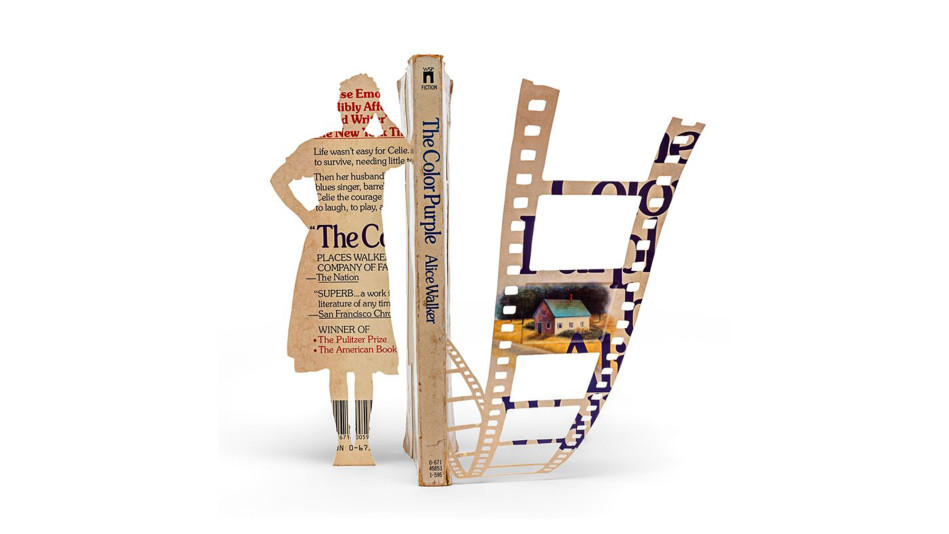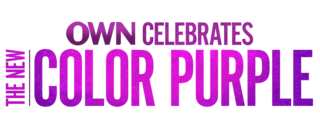What The Color Purple Means to Oprah
For Oprah, The Color Purple is more than a beloved book—it's a force of nature that touched her soul and changed her entire life trajectory. Here, she explains the novel's tremendous impact on her career.

Photo: Thomas Allen
In honor of The Color Purple's release in theaters on December 25th, OWN is giving away $500 to see the film with your friends. Enter now for a chance to win!
Did you know that Alice Walker's Pulitzer Price-winning novel The Color Purple is responsible for the birth of Oprah's Book Club—and Oprah's entrance into the world of film production? In this personal essay, Oprah describes the novel's immeasurable influence on her life and career.
***
I still remember the shock of recognition I felt when, in 1982, I first read Alice Walker's just-published The Color Purple—a sensation that remains indelible even now.
I was stunned and mesmerized by the truth I found in it, from page one, where a pregnant Celie writes: "Dear God, I am fourteen years old. I am I have always been a good girl. Maybe you can give me a sign letting me know what is happening to me." That first line brought me back to an awful time, when, at 14, after being molested, I was waiting to be admitted to a detention home that turned out to have no room. I, too, was pregnant. How did I get here? I kept asking myself. I'd always been a good girl, trying to please everyone and doing what people wanted me to do. I wasn't a bad girl, but if I wasn't a bad girl, why was I here? Like Celie, I was in despair. Thinking back on that now still makes me cry. Until I read The Color Purple, I'd believed I was alone in my shame, that no one else had gone through what I had. But there was Celie, saying what Iâââ€Ã...¡Ã‚¬Ã¢â€Ã...¾Ã‚¢d said in my head. Reading that book was life-altering, liberating, self-affirming. It was everything. I became obsessed with the book. I bought copy after copy to give out.
After I moved to Chicago to host AM Chicago (which later became The Oprah Winfrey Show), I bonded with my intern Alice McGee over our mutual love of The Color Purple. For Christmas in 1985, Alice gave me a leather-encased edition inscribed with this line from the book: "She bound to live her life and be herself no matter what." That passage was a touchstone for me. And by the way, Alice McGee and I began to regularly exchange and talk about other books we were reading. Eventually, she rose through the ranks to become a senior producer, and one day she suggested that maybe our audience would be interested in the kinds of conversations we were having about books. Pretty smart idea, I thought. At first, we said that you can't talk about fiction on television because no one will have read the book you're talking about. But we figured out that if we announced the book and then gave people time to read it, enough of our audience would be engaged that we could forge a big conversation around it. And that is how, in 1996, Oprah's Book Club came to be.
The Color Purple forever changed the way I read books. I started looking for themes that resonated deeply within me and thinking of ways to connect with others through the author's words. But that book had an impact well beyond what was on the page. When I heard someone was making a film of Walker's novel, I knew I had to be part of it somehow, even if it meant carrying water to the actors on set or fanning them. I didn't care. Being cast in the film—being on that magical set every day—was, along with doing the Oprah show, the seminal experience of my life. Before that, I had no idea how the movie business worked. But because of what I learned from Steven Spielberg, Quincy Jones, Alice Walker, and their truly symbiotic collaboration, going forward, when I found a book that struck a deep chord with me—such as Toni Morrison's Beloved or Gloria Naylor's The Women of Brewster Place—I immediately began to imagine how I could help bring it to the screen. More recently, when I read Ta-Nehisi Coates's The Water Dancer, it felt filmic—its themes came to life in my head, and I could even picture who would play the various characters, just as I'd felt when I read Beloved.
Being on the set of The Color Purple transformed me. There was a huge tree with a tree house, and I used to climb the ladder and sit and watch the filmmakers, whether I needed to be on set that day or not. Observing them, I understood what it meant to be in alignment with your life. I had a kind of spiritual awakening, being in the midst of that synergy. I wanted that high vibration of joy to be a part of how I lived my life from then on. Afterward, I did my shows differently. I began looking at my job as an offering: What is the gift you bring? I asked myself. What can you offer others? If I think of the single most important thing that ever happened in my career, other than moving to Chicago, it is The Color Purple.
***
 Enjoy this special, behind-the-scenes look at the new movie The Color Purple, in theaters Christmas Day.
Enjoy this special, behind-the-scenes look at the new movie The Color Purple, in theaters Christmas Day.
For a limited time, you can watch Steven Spielberg's 1985 film adaptation starring Oprah and Whoopi Goldberg on OWN.tv.
And remember to check Oprah's Super Soul Podcast feed later this December for interviews with the stars of the new film—including Fantasia, Taraji P. Henson and Danielle Brooks!



